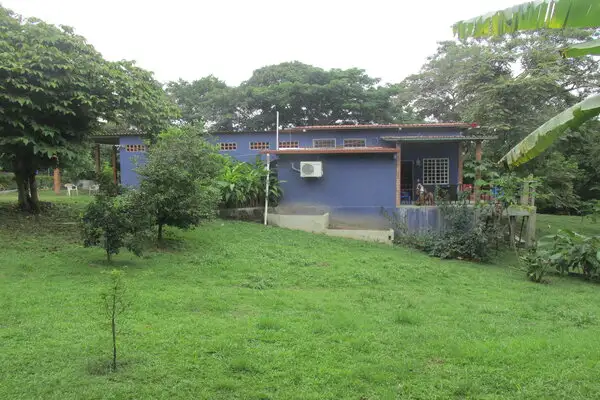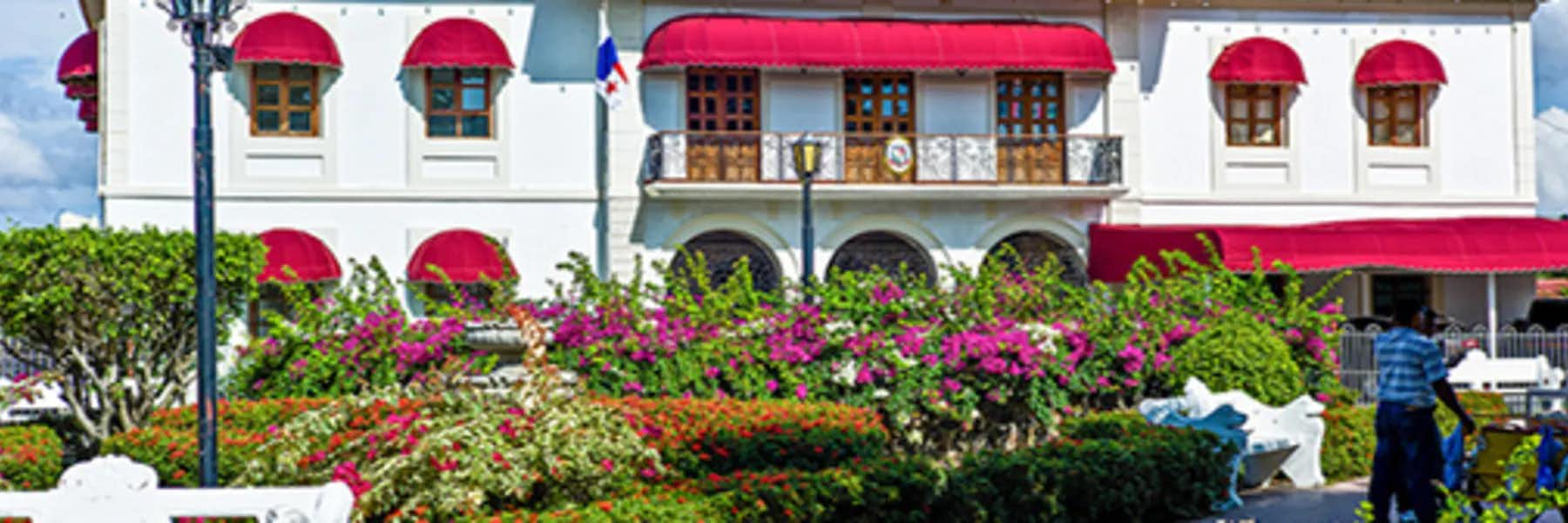If I can impart one lesson about living overseas, it’s this: Don’t wait to make your dream a reality. Expats are dreamers who decided to make their dream come true.
There will never be a “right time” without any obstacles to overcome. Make your dreams a reality anyway.
Growing up in the U.S., I always dreamed about living in the tropics. A spinal cord injury at age 15 made me a quadriplegic wheelchair user. That didn’t stop me from living my dream.
It was a dream I shared with my childhood friend Federico. He never got to see it come true because he died due to asthma complications in 2010.
The night he died, Federico told me that if we didn’t get serious about moving, it would be nothing more than a dream.
Get Your Free Panama Report Today!
Get Your Free Panama Report Today!
Learn more about a healthier outdoor life in Panama and other countries in our daily postcard e-letter. Simply enter your email address below and we'll send you a FREE REPORT -- Panama: Easy, First-World Living and the World’s Best Retiree Program.

By submitting your email address, you will receive a free subscription to IL Postcards and special offers from International Living and our affiliates. You can unsubscribe at any time, and we encourage you to read more about our Privacy Policy.
His statement put me on a mission. I began to get serious about my tropical dream life.
Working on a list of what I would like in a new home was a critical first step. It was not the content of the list that was critical. It was the change in attitude it took to make the list.
Federico and I had been researching Mexico, Belize, and Costa Rica. Panama was not originally on my list.
An article a friend sent me made me realize Panama met my top wish list item: a warm tropical climate. Two other important items were economic and political stability. These also influence safety and security.
The article made some interesting points. Panama is in the Eastern Standard time zone, making communication back home easy. It’s south of the hurricane zone, keeping it hurricane-free. And it uses U.S. currency.
Get Your Free Panama Report Today!
Get Your Free Panama Report Today!
Learn more about a healthier outdoor life in Panama and other countries in our daily postcard e-letter. Simply enter your email address below and we'll send you a FREE REPORT -- Panama: Easy, First-World Living and the World’s Best Retiree Program.

By submitting your email address, you will receive a free subscription to IL Postcards and special offers from International Living and our affiliates. You can unsubscribe at any time, and we encourage you to read more about our Privacy Policy.
This article provided enough facts to inspire me.
A little follow-up research immediately pushed the country to the top of my list.
The next thing to do was to go and see the country for myself.
Nothing can replace a visit. Using your own five senses to find wonders or red flags in a potential new home is the essential next step to making your dream a reality.
“Wow!” was my response to my first short visit to Panama City.
Living in Atlanta, I liked the city life. Panama City impressed me enough to consider it further. There were things I identified that needed more research, including accessibility.
Get Your Free Panama Report Today!
Get Your Free Panama Report Today!
Learn more about a healthier outdoor life in Panama and other countries in our daily postcard e-letter. Simply enter your email address below and we'll send you a FREE REPORT -- Panama: Easy, First-World Living and the World’s Best Retiree Program.

By submitting your email address, you will receive a free subscription to IL Postcards and special offers from International Living and our affiliates. You can unsubscribe at any time, and we encourage you to read more about our Privacy Policy.
Panama actually has a law about disability accessibility. And although accessibility is pretty good, it's not great. (This is true both in Panama and the United States.)
My second trip included tours with two different realtors. I determined I could live here without serious problems.
This brought me to the next, most important step: Learning what I don’t know that I don’t know.
Time for professional help.
I attended a relocation conference, like the one IL has coming up soon (details of that here). This was money well spent. The information and advice I got at the conference helped me plan a trial period to live in Panama before committing to a permanent move.
Get Your Free Panama Report Today!
Get Your Free Panama Report Today!
Learn more about a healthier outdoor life in Panama and other countries in our daily postcard e-letter. Simply enter your email address below and we'll send you a FREE REPORT -- Panama: Easy, First-World Living and the World’s Best Retiree Program.

By submitting your email address, you will receive a free subscription to IL Postcards and special offers from International Living and our affiliates. You can unsubscribe at any time, and we encourage you to read more about our Privacy Policy.
Leasing my house in Atlanta for three years gave me a window of opportunity. If things in Panama failed to work out, I could return to my home and try again somewhere else.
My disability added a level of difficulty. Every condo I looked at had an inaccessible bathroom. Finally, I found an expat with a house that only needed an entry ramp to be sufficiently accessible for me.
You know what they say about the best-laid plans. Calling a month in advance to confirm my rental turned into a disaster. Once the owner found out I was coming alone, he questioned my ability to live alone there—despite the fact I lived alone in Atlanta.
The owner backed out, and it took me two more months (living at my mom’s) to find another accessible location. I arrived in Panama February 1, 2012.
The new place was a rural location much farther out from Panama City. Halfway between Coronado and the town of Penonomé.
This turned out to be a blessing in disguise.
Coronado has a large expat population. Penonomé is a provincial capital with a very small expat population. They provided an excellent contrast.
After 10 months in Panama, I decided I could spend the rest of my life here. I bought a car, and began searching for a home or a place to build a home.
Here’s a secret: The realtors targeting expats gave me gringo prices. The realtor signs I found driving around led me to websites with more affordable prices.
I found a 3,000 square foot, 10-room house on a small lot that was bigger than I needed or wanted. But it was only one mile from downtown Penonomé, atop a cliff overlooking Rio Zarati. The location was beautiful and convenient. At only $120,000, I could not turn down the bargain.
So I made my home in the Panamanian town of Penonomé… and haven’t looked back since.
One of my desires was to experience a new culture. I certainly experience that here, as I feel part of the small-town community.
Sometimes it is hard to believe I’ve lived in Panama for almost 12 years.
Get Your Free Panama Report Today!
Get Your Free Panama Report Today!
Learn more about a healthier outdoor life in Panama and other countries in our daily postcard e-letter. Simply enter your email address below and we'll send you a FREE REPORT -- Panama: Easy, First-World Living and the World’s Best Retiree Program.

By submitting your email address, you will receive a free subscription to IL Postcards and special offers from International Living and our affiliates. You can unsubscribe at any time, and we encourage you to read more about our Privacy Policy.

There are pros and cons of course. The biggest negative about moving to a new country is missing your friends and family. It takes an effort to remain connected. To keep up with everyone when I first moved, I would write a letter and send it out as a group mailing. It evolved into a full-fledged monthly newsletter complete with photos. It has become a lasting pleasure to write my monthly ramblings and to look for photos to include.
A VOIP phone lets me make free phone calls to the United States and Canada for a small annual fee. I make a conscious effort to randomly call at least one friend every week. This process works so well, I find myself reconnecting with friends I have not spoken to in years. Free online video services let me see friends as we talk. Distance no longer matters. Even through the pandemic, I didn't feel isolated. I never think about moving back.
Living here, I choose to filter out much of the U.S. news. The TV isn't constantly screaming at me about what someone else thinks should be important. Sure, I can't block out all the news, but I can decide what I want to know about in detail, and what to ignore.
Why did I stay in Panama? I feel safe here. Changes, like new stores opening, roads being paved, and a new hospital being built, are important to me because I am a member of this community. Births, marriages, deaths, job changes, and other events in the lives of my friends matter to me. These things are what make a house a home.
This is why Panama is my home.
I have one final thing I want to share with you: There is only one difference between me and the dreamers reading this article. I took action.
Get Your Free Panama Report Today!
Get Your Free Panama Report Today!
Learn more about a healthier outdoor life in Panama and other countries in our daily postcard e-letter. Simply enter your email address below and we'll send you a FREE REPORT -- Panama: Easy, First-World Living and the World’s Best Retiree Program.

By submitting your email address, you will receive a free subscription to IL Postcards and special offers from International Living and our affiliates. You can unsubscribe at any time, and we encourage you to read more about our Privacy Policy.
Related Articles
Living in Panama: Everything You Need to Know
Coronado, Panama: Retiring, Cost of Living and Lifestyle Information
